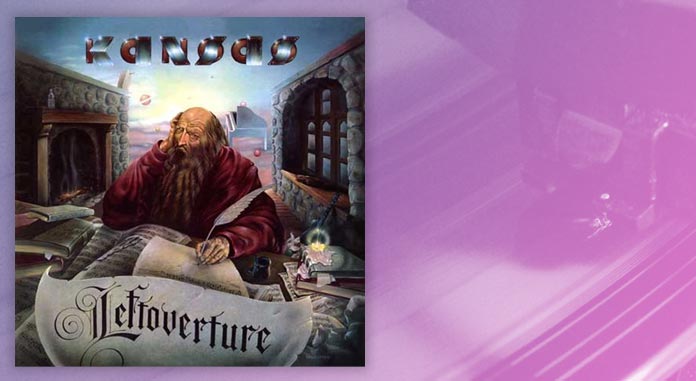Waxing Nostalgic Connecting the Dots: Kansas, “Carry On, Wayward Son”
Published on October 16th, 2013 in: Music, Waxing Nostalgic |I grew up listening to the Moody Blues, so I was no stranger to pseudo-mysticism and lyrics that some people would consider “heavy.” In third grade, I knew what The Lost Chord was. I understood revolution in the streets as well as how to call occupants of interplanetary, most extraordinary, craft. Was I a weird kid? Were all pre-teens in the Seventies like that?
Maybe we were all weird kids, regardless of when we were born.
Carry on, my wayward son . . .
“Wayward.” You don’t hear that word much anymore. I had only heard one time before, in an old song by Gogi Grant called, “The Westward Wind.” I sort of grasped that it meant free-spirited, uncontainable. But as a child in the grasp of the church, it also meant one other thing: sinner. The thing I was most afraid of being, the thing I knew that I was, the thing I could not escape. Was this song a direct message to me from Jesus?
There’ll be peace when you are done . . .
I had already learned there was no peace on Earth. I knew there would always be wars and rumours of wars. There was no rest for the wicked. I knew I would never achieve any kind of peace, unless… well, that was a sin, too. Wasn’t it?
Lay your weary head to rest . . .
I had insomnia as a child. Sleep was the enemy. Of course, I had school the next day. I had to get my rest. The dark circles under my eyes put Billy Joel to shame. Eight years old, and I was haggard, a wreck. That line of the song mocked me, shamed me. Rest was a joke.
Don’t you cry no more.
Let’s clear something up real quick. My folks and I had a decent relationship. We had our rough patches, like everyone does; places where we didn’t understand each other, refused to see eye to eye. I learned, though, at an early age, how not to cry. I was not a weeper. I was a compartmentalizer. Everything in its proper place at all times, even emotions. Especially emotions. Crying was a form of weakness that I did not relearn until my late thirties. It probably saved my life.
That song, exploding through the FM radio with a capella force, riveted and horrified me. It did feel like a prophecy, a doomsaying, over my life. The Lord spake, and unto me he said, “Your sins are too much for even me to handle. You should kill yourself. Do us all a favor.”
The music, with its church organ keyboards and bombastic guitar riffs like thunder rolling under the ground, was like a missive from hell. It was absolutely joyless. It may as well have been wearing a blank face mask or, more accurately, a prayer shawl.
It took a long time for that song to stop being a threnody, heard only at night, alone, when the demons rose from Judeo-Christian hell through the cracked foundation of my house and came directly into my room.
“Carry On, Wayward Son” was Kansas’s first Top Forty hit in the States, topping out at number eleven on the charts. It was written by Kerry Livgren, who later converted to Christianity and released a few Contemporary Christian albums. That fact doesn’t necessarily make me feel better about the song.
I can appreciate it for what it is on the surface: a dense work of progrock with a great sing-along chorus. It really is Arena Rawk at its finest. The song comes on and I instinctively reach for a lighter I no longer possess, having quit smoking. Even now, though, I don’t—can’t—forget the song that held my young soul captive. It was the musical equivalent of a Jonathan Edwards sermon, sinners in the hands of an angry lead guitarist, and that spiritual horror makes the song even more compelling to me, as a worldly, cynical adult.

Time limit is exhausted. Please reload the CAPTCHA.